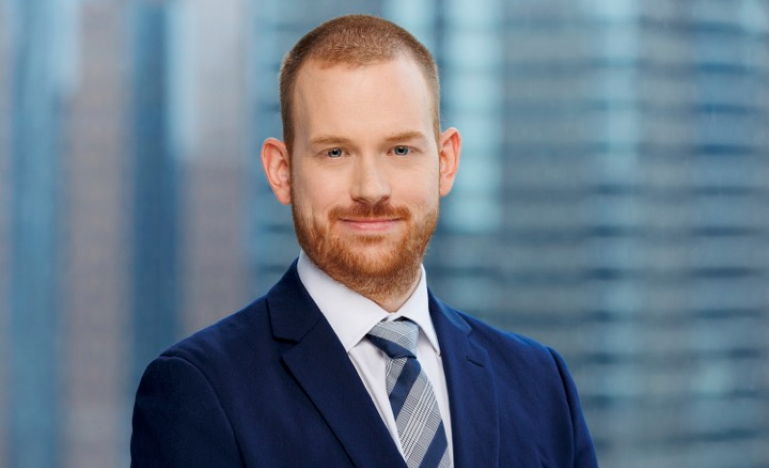Breaking the stigma
Legal professionals are raising awareness of mental health among men.

"There has been a challenge in getting men to talk about mental health issues," says Brandon Trask. "We need to break that cycle of stigma."
Trask, a University of Manitoba law professor and former Nova Scotia prosecutor, says he developed post-traumatic stress disorder (PTSD) during his legal career. He is now working to change the legal culture, aiming to spare his students the challenges he faced.
"I am very outspoken about mental health in the classroom setting," he says. "I'm trying to destigmatize and normalize discussions of mental health."
Too many men feel the pressure to be stoic and avoid discussing their feelings, he says. "That often comes from growing up in an environment where it was seen as a weakness to discuss emotion or shed a tear," he says. "But the need to be stoic in the face of everything that comes along is not healthy, and it is not human."
A concern about men's health is also what inspired Dennie Michielsen, a paralegal and researcher at Clyde & Co Canada LLP, to start a Movember initiative at his law firm. This year, Michielsen, based in Montreal, has convinced around 60 colleagues globally to grow a charity mustache.
"The legal profession is a very stressful profession," says Michielsen. "It has a considerable impact on the people that work in it."
The National Study on the Psychological Health Determinants of Legal Professionals in Canada, released last year, revealed that over half of respondents reported experiencing psychological distress and burnout. The study highlighted elevated levels of stress, depression, and substance use, particularly among lawyers in their early years of practice.
According to the study conducted by researchers at the Université de Sherbrooke with funding from the Federation of Law Societies of Canada and the CBA, over 57% of surveyed legal professionals had experienced psychological distress, and more than 35% had dealt with anxiety.
Michielsen characterizes the study results as "shocking" and emphasizes the importance of dismantling the lingering stigma affecting men. The message is also echoed by Carolena Gordon, the global senior partner at Clyde & Co LLP. "Men have the tendency to ignore physical and mental health issues. They're busy, they're focused and they may think that they don't have time for this," says Gordon, who is based in Montreal.
Gordon says that the Movember initiative is one of many at Clyde & Co LLP designed to help men talk more about their mental and physical health.
A career in law can be hectic, she says. "You have to balance it with good mental and physical health. You have to be active. You have to look after yourself."
Gregory G Evans, KC, a lawyer, mediator, and arbitrator in Winnipeg, says that a shift in the legal culture is essential to prevent the loss of talented lawyers due to inadequate support for mental health issues.
The young associates who tend to be rewarded by their firms are the ones "with poor boundaries and who are available 24-7," says Evans, a family law practitioWhat's ner. "But that's not a sustainable lifestyle and it's not a sustainable way to practice law. [I]f you do that for a couple of years, you are really going to burn out. And then a law firm has lost a valuable lawyer because they haven't valued wellness behaviours."
What's more, ignoring mental health issues ignores the needs of the clients. "We really want to see this profession remain helpful to the people we serve," says Evans. "This is an amazing profession and an amazing opportunity to help people and contribute to a better society. But we can't do that if we are not right with ourselves. We need to accept the reality that we are broken, and we need to fix this."
Evans, who has been in recovery from alcoholism for 30 years, says he is especially concerned about the legal community's focus on alcohol.
"Think of the legal functions you attend that don't serve alcohol—I can hardly think of any," he says. "If you have a culture where socializing requires alcohol, there is a number of people who are walking time bombs."
"It's important to acknowledge that the profession has an alcohol problem," says Trask. Drinking is the main coping mechanism for many lawyers and alcohol-focused events are part of the culture.
"The culture at a particular firm might be that everybody meets for drinks -- if we win a big case, let's go out for drinks and if we end up on the wrong side of a decision, let's drown our sorrows," says Trask. When it becomes ingrained and automatic, people lose track of their consumption levels, turning it into a default coping mechanism, which end up amplifying mental health problems.
Trask, however, is more hopeful when observing his students. "I'm heartened to see a generational shift with law students and recent graduates," he says. "It is essential to the survival of the profession — not just individual practitioners but the profession itself."


